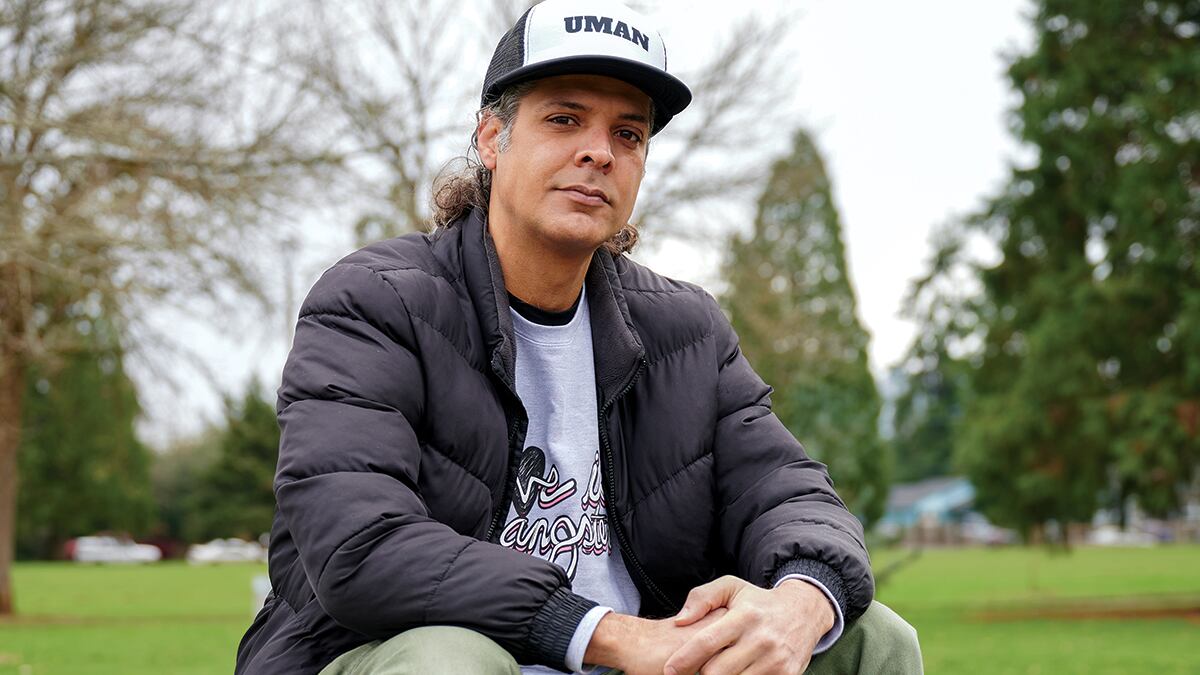Pedro Anglada Cordero can see the next tragedy poised to hit Portland. It’s happening among children.
Anglada Cordero, 45, is a social worker in two North Portland elementary schools. He works primarily with Indigenous Central American and Black families, and many of the people he assists—more than 500 families, including around 25 he works with consistently—are living below the poverty line.
In the past year, he’s seen how minority communities have been affected by the COVID-19 pandemic in ways other Portlanders don’t understand. His vantage point: schools, especially elementary schools, where children have yet to learn how to mask their traumas and stresses, lending to brutal honesty.
Perhaps the most infuriating aspect of Anglada Cordero’s work is his struggle to untangle for families the botched government aid program for tenants who can’t pay their rent. Some families, primarily Spanish speakers, have been waiting for more than nine months, their applications tossed back to them by a glitchy web portal.
The effects of nearly two years in isolation on kids have been widely documented and debated in recent months, as symptoms of that misery bubble up in school hallways. But Anglada Cordero says many Portlanders still don’t see what happened to the kids who witnessed the worst side effects of the pandemic: lost jobs, evictions, domestic violence and shootings.
In this interview, Anglada Cordero describes the Portland he sees. What he’s witnessed leaves him little optimism that state and city leaders can help heal Portland in the coming year.
WW: How is the mental health of the students you work with, and how are they readjusting to in-person school?
Pedro Anglada Cordero: One thing that kids do when they’re struggling through learning is to avoid that learning, or isolate themselves. It manifests itself in disruptive behaviors. Breaking, pushing, running away, becoming physical.
Kids in kindergarten through second grade probably have it the worst. Towards the higher grades, you may see more behaviors that are more connected to depression. Maybe more withdrawn, they don’t want to be seen. But I’m starting to see that in kids who are younger.
I also see a lot of students who have a hard time detaching from their parents, to the point that they either cannot handle that and have a meltdown, or simply struggle throughout the day emotionally.
Were low-income kids affected more adversely by online school?
There are a lot of students who may have spent time at home alone or been cared for by a slightly older sibling. So they’re not having any emotional support throughout the day for weeks and months, and then suddenly coming into a classroom where there are expectations of all kinds of rules and distancing guidelines and boundaries.
How many of your families were affected by job loss?
One hundred percent of the families that I help to apply for rental assistance were—either partial or full loss. Maybe because of lack of child care, like one parent had to work with reduced hours, the other had to stay home. Oftentimes in households where there were both parents present, I saw that the father went back to work. And the mother had to stay home.
What about gun violence?
One shooting has a domino effect. We’ve seen kids now coming into our schools who have lost a parent since the pandemic began through violence.
Some kids are able to receive some support on the school level through counselors. But for some, it’s a one-day-at-a-time sort of thing. Sometimes those services are not available. Referrals for mental health services are usually behind. You may be referred to the service, but there’s high turnover and high attrition.
The inequities in schools that existed before the pandemic—have they widened or narrowed?
The pandemic basically comes along and says if you haven’t dealt with this, now it is time to do it. For a little time, we were wrestling with that conversation and taking action. But now we are moving in a drift where essentially we are collectively paralyzed. We are basically seeing how we continue to fail without taking action.
During the beginning, when the schools kept nutritional services open and so on and were trying to find out who were the families who were really in need of resources, I was having discussions every day with teachers and administrators. There was a genuine interest in doing the best for the community. But once the discussions for hybrid learning started happening, the discussion changed from “let’s hear you and see you” to “if you don’t agree with us, then you are against us, and this is the way it’s gonna happen.”
You’ve helped over two-dozen Spanish-speaking families apply for state rental assistance. What has made that process so cumbersome?
People had to call and wrestle with requesting Spanish, which many times is not provided. Whoever was calling, the phones were just being hung up. Another is access with technology and proficiency with internet tools like chats. A lot of these application sites work with language engines…and then maybe the way that’s translated in Spanish turns into something that you don’t necessarily understand. And terminology that is completely foreign, even in their own primary language.
The rental assistance program has caused whatever trust that was left to have essentially gone away.
How has your attitude about Portland changed in the past year and a half?
I’ve deeply soured. I have very little hope that city officials are going to do what is required to gain trust. We are in the middle of a collapse. It is time for people to become more together and start doing things instead of waiting for institutions or the state or the city to take action.
This article was published with support from the Jackson Foundation, whose mission is: “To promote the welfare of the public of the City of Portland or the State of Oregon, or both.”

